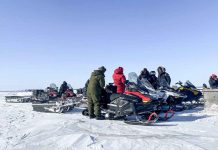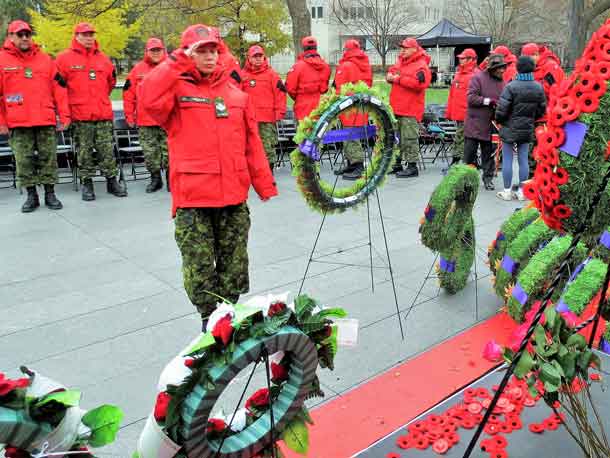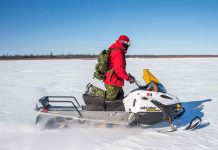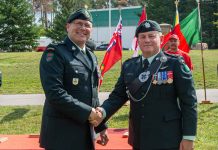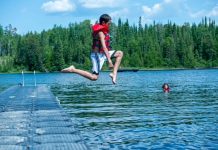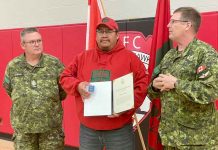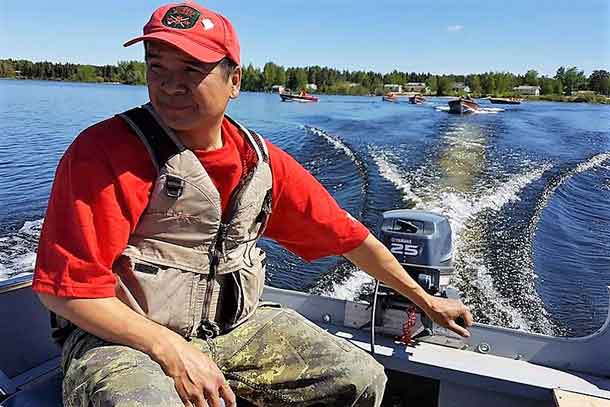

credit: Major Douglas Ferguson
By Peter Moon
Rain and damage caused by a marauding black bear failed to deter a group of Canadian Rangers from completing a successful training exercise in Northern Ontario.
“It was a good exercise,” said Warrant Officer Barry Borton, a Canadian Army instructor. “They enjoyed it and they learned a lot.”
The five-days of training took place at Quicksand Rapids on the Windigo River, near Muskrat Dam First Nation, about 575 kilometres north of Thunder Bay. The Rangers, who are part-time army reservists, reached it by boat from the six First Nations of Bearskin Lake, Kasabonika Lake, Muskrat Dam, North Caribou Lake, Sachigo Lake, and Sandy Lake.
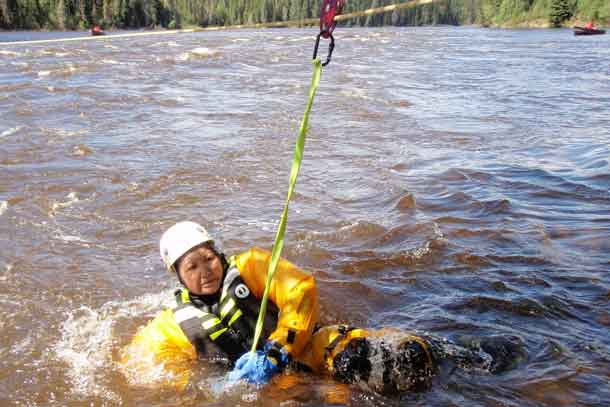
“A big thing for them was just getting to the camp,” Warrant Officer Borton said. “They had to plan their routes through different waterways, organize their boats, and how they were going to load them.
“It rained on us the first day. We were soaking wet and it took us a while to get our kit dried. Then we had a couple of nice days and after that it rained a lot on us. The rain slowed down the training. But the only complaint I had from the Rangers was that they wanted the exercise to be longer.”
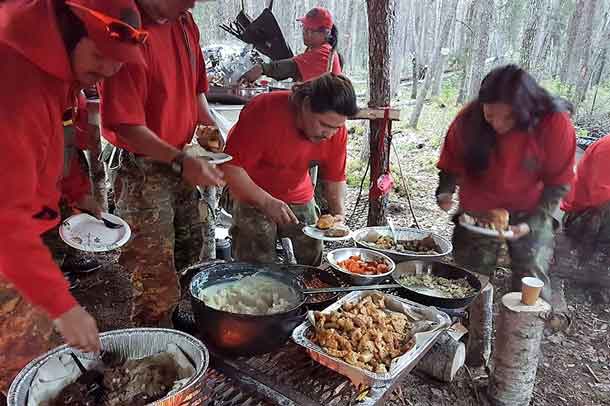
credit: Major Douglas Ferguson
An advance party set up part of the training camp but when they left it unattended a black bear wandered in and caused considerable damage, including ripping several of the tents and bags and dolng a lot of other damage. The bear was never sighted.
A highlight of the training was swift water rescue, conducted in the rapids. “(Master Corporal) Emily Beardy of Muskrat was the first one to put up her hand and go into the water,” Warrant Officer Borton said. “The Rangers enjoyed the swift water training immensely. It was the highlight for them. There were smiles on all the Rangers faces, from ear to ear.”
Other training consisted of search and rescue, navigation using both GPS and compass, a shooting range, and skeet shooting to improve shotgun accuracy. “They loved the skeet shooting,” Warrant Officer Borton said. “They were blasting away until we said: ‘Enough, guys are trying to go to sleep.’”
“There was a lot of fishing,” he said. “Every night we had enough fish to feed everybody. The Rangers do know how to fish.”
Lieutenant-Colonel Matthew Richardson, commanding officer of the Rangers in Northern Ontario, attended the exercise and was impressed by the Rangers’ competence in the bush.
“When you see them in action,” he said, “you realize how good they are on the land. Being in the bush, on the land, that’s their territory, their natural habitat. What the Rangers do is totally different from what anybody else in the military does.
“This time we had 37 Rangers working together but normally in a real-life search and rescue operation it’s usually just two or three of them, and they are out there by themselves trying to save a life with no back-up to the rest of the army.
“So on this exercise they were having fun but they were practicing core Ranger skills, skills they use to save people’s lives when they are called out.”
In 2016 Rangers in the Far North of Ontario were involved in 25 search and rescue operations and saved 32 lives.
(Sergeant Peter Moon is the public affairs ranger for the 3rd Canadian Ranger Patrol Group at Canadian Forces Base Borden.)


